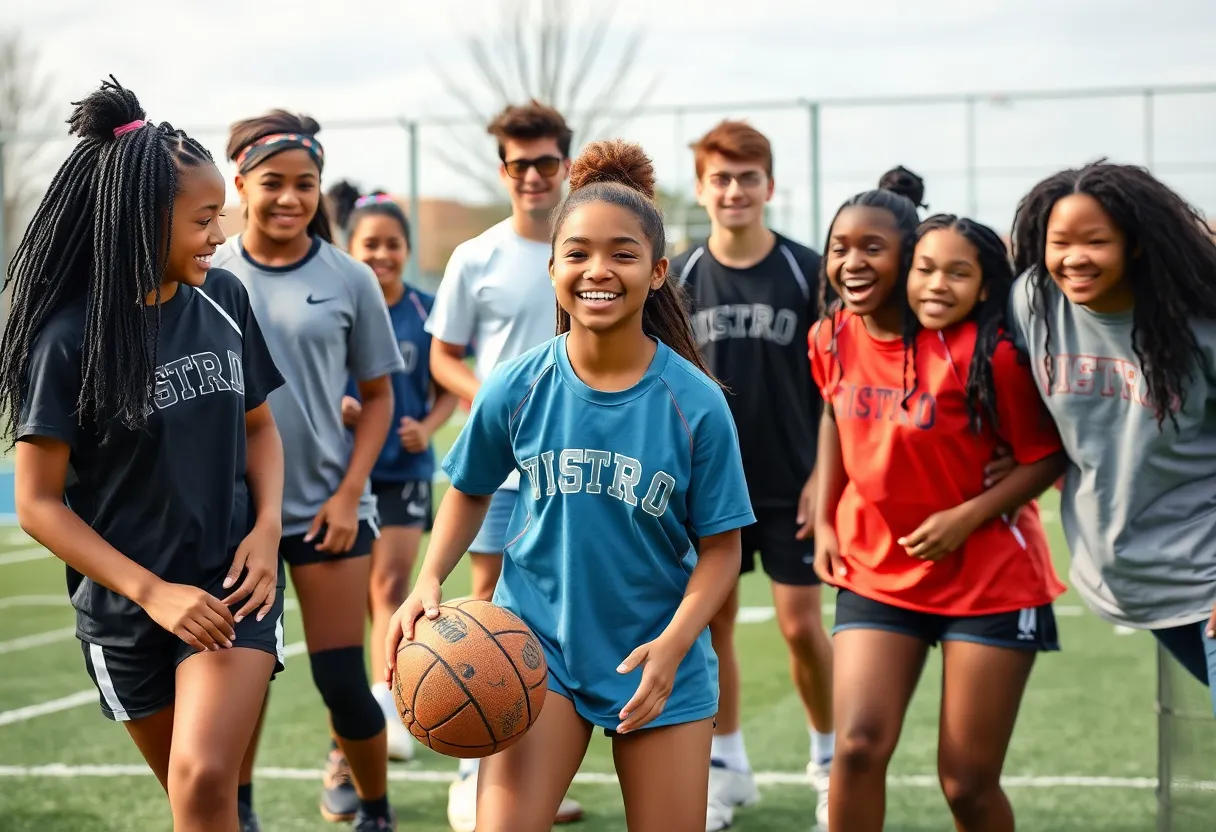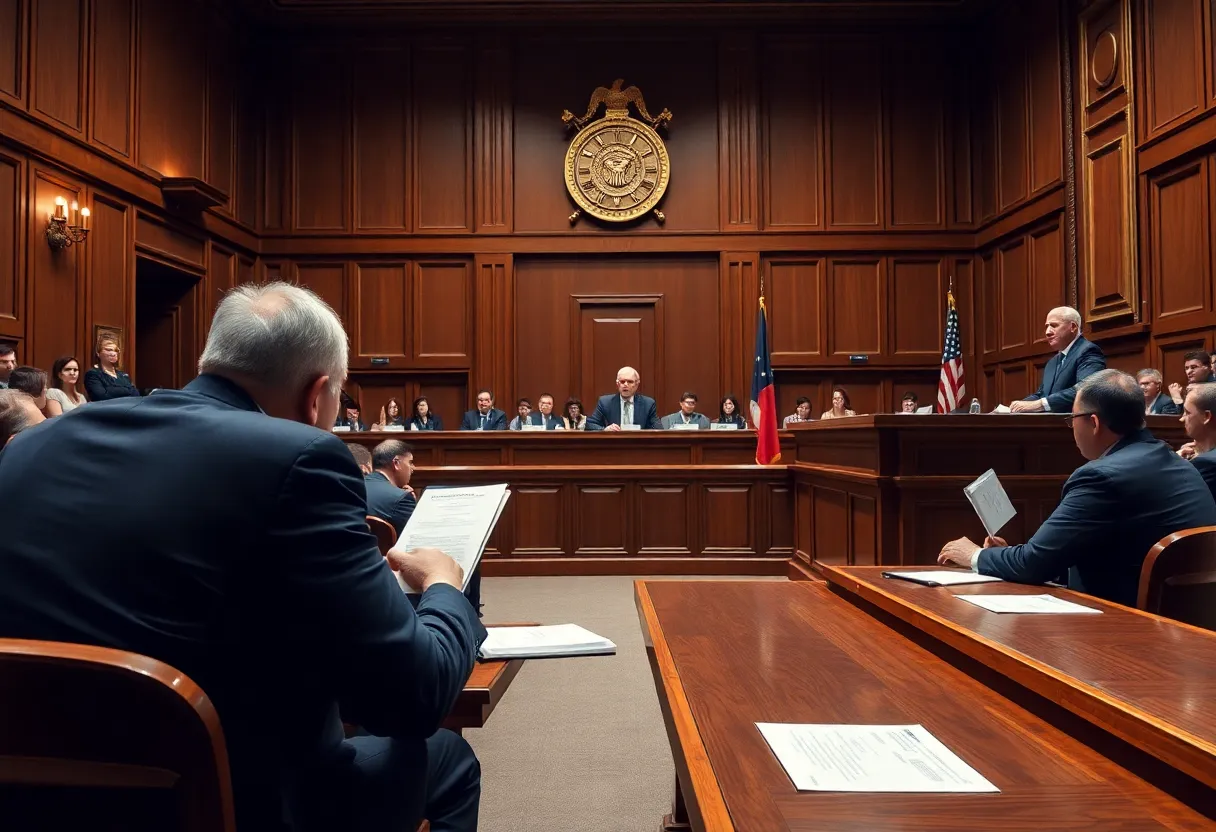News Summary
State Senator Melanie Scheible has publicly denounced the NIAA’s recent decision to ban transgender athletes from girls’ high school sports. She argues that this policy targets vulnerable student-athletes unfairly and lacks compassion. Critics believe the ruling reflects broader societal divisions and could alienate transgender youth, who already face significant challenges. Advocates for inclusion in sports emphasize the importance of creating a supportive environment for all athletes, regardless of gender identity, as the debate over this controversial issue continues in Nevada.
Las Vegas Senator Takes a Stand Against NIAA’s Controversial Ban on Transgender Athletes
Las Vegas, NV – In a passionate and thought-provoking discussion on Nevada Newsmakers, State Senator Melanie Scheible has voiced her strong disapproval of the Nevada Interscholastic Activities Association’s (NIAA) recent decision to ban transgender athletes from participating in girls’ high school sports. The new policy, which reverses a more inclusive stance adopted in 2016, has stirred considerable debate among lawmakers, advocacy groups, and the community at large.
What sparked the divide?
Senator Scheible, who chairs the state Senate Judiciary Committee, expressed her profound dismay at the NIAA’s ruling, which she believes unfairly targets a vulnerable group of student-athletes. By aiming to restrict participation based solely on biological sex while overlooking gender identity, critics argue the NIAA’s policy not only lacks compassion but also fails to consider the rights and well-being of transgender youth.
The NIAA’s justification for the ban points to “sex-linked differences” in physical development, proposing that the eligibility criteria for girls’ sports should hinge exclusively on biological sex rather than identity. However, many contend this reasoning seems unnecessary when you consider that the number of transgender athletes participating in Nevada high schools is incredibly low. In fact, reports suggest fewer than ten transgender athletes compete at the NCAA level, a mere blip compared to a staggering 500,000 overall athletes.
Breaking down the numbers
To put things into perspective, the overall population of transgender individuals is estimated to be under 10%. Given this statistic, it’s easy to see how the NIAA’s new ruling affects only a tiny fraction of student athletes across the state. Moreover, an NIAA official even confirmed they do not keep track of how many transgender athletes are participating, raising questions about the necessity of the ban in the first place.
The backlash from lawmakers
Adding fuel to the fire, Senator Scheible criticized NIAA board members for what she described as sowing division among children who are simply eager to engage in sports together. She expressed concern that the board’s actions reflect a broader campaign aimed at demonizing a minority group that just wants a place in athletics. In her view, this move only leads to exclusion and alienation of those who are already navigating tough experiences in their lives.
There’s also been mounting criticism surrounding the influence of Lieutenant Governor Stavros Anthony, who is alleged to have promoted the ban. Scheible has called into question his use of state resources for a task force that pushes for protecting women’s sports, arguing that this work should not veer into political territory but rather focus on supporting students in their athletic endeavors.
Supporters rally against the ruling
Opponents of the ban aren’t just limited to Scheible. Individuals like Andre Wade, from Silver State Equality, have labeled the NIAA’s decision as unconstitutional, warning of concerns that female athletes might face invasive gender scrutiny as a result of these new policies. Assemblyperson Selena Torres-Fossett has joined the conversation, echoing concerns about Lt. Gov. Anthony’s motivations and questioning the ethical use of public resources in this context.
Moving forward
The conversation surrounding the participation of transgender athletes in sports continues to evolve, with mounting calls for understanding and support instead of exclusion. Advocates argue that it’s imperative to emphasize the importance of embracing diversity in athletics, recognizing that every child deserves an opportunity to participate and thrive in educational settings, including sports.
Conclusion: What’s next?
As the debate sails forward in Nevada, the focus will undoubtedly remain on how to best support transgender children in the athletic arena, rather than excluding them based on a policy that many find discriminatory. Ensuring that every athlete feels included and valued is crucial to fostering a positive and healthy sports culture for the future.
Deeper Dive: News & Info About This Topic
HERE Resources
Additional Resources
- Nevada Appeal: Senator Blasts Sports Group for Transgender Ban
- Review Journal: Bill to Change Nevada Probate Laws
- The Nevada Independent: Freshman Orientation with Sen. Melanie Scheible
- News 3 LV: Senator’s Bill for Equal Healthcare Access
- My News 4: Should Nevada Legislature Conduct Uprise Investigation?
- Google Search: Transgender Athletes






